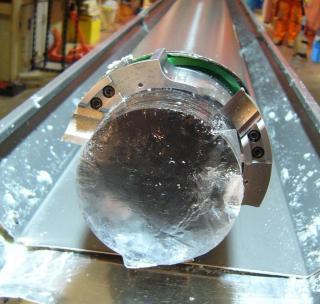Published in Nature Communications: Antarctic ice analyzed to show relationship between marine life and climate.
- Share
- Tweet
- Send to email
Keisuke Suzuki of the Faculty of Science, Shinshu University participated in research led by Prof. Kumiko Azuma of the National Institute of Polar Research. The group studied changes in sulfate aerosols derived from Antarctic phytoplankton over the past 720,000 years. It was found that, contrary to the conventional theory, sulfate aerosols derived from phytoplankton were likely to have decreased during the glacial period and increased during the interglacial period.
Sulfate aerosols are thought to affect the climate by blocking sunlight and making clouds easier to form. The results of this research will be an important clue to elucidate the relationship between biological activity and climate change in the Antarctic Ocean, and the variation of factors including carbon dioxide concentration, which is closely related to photosynthesis.
See below for details.
Link to the Paper:"Reduced marine phytoplankton Sulphur emissions in the Southern Ocean during the past seven glacials"
https://www.nature.com/articles/s41467-019-11128-6
Link to Eurekalert:"Sulphur emissions from marine algae dropped during glacial periods"
https://www.eurekalert.org/pub_releases/2019-09/rooi-sef091119.php





